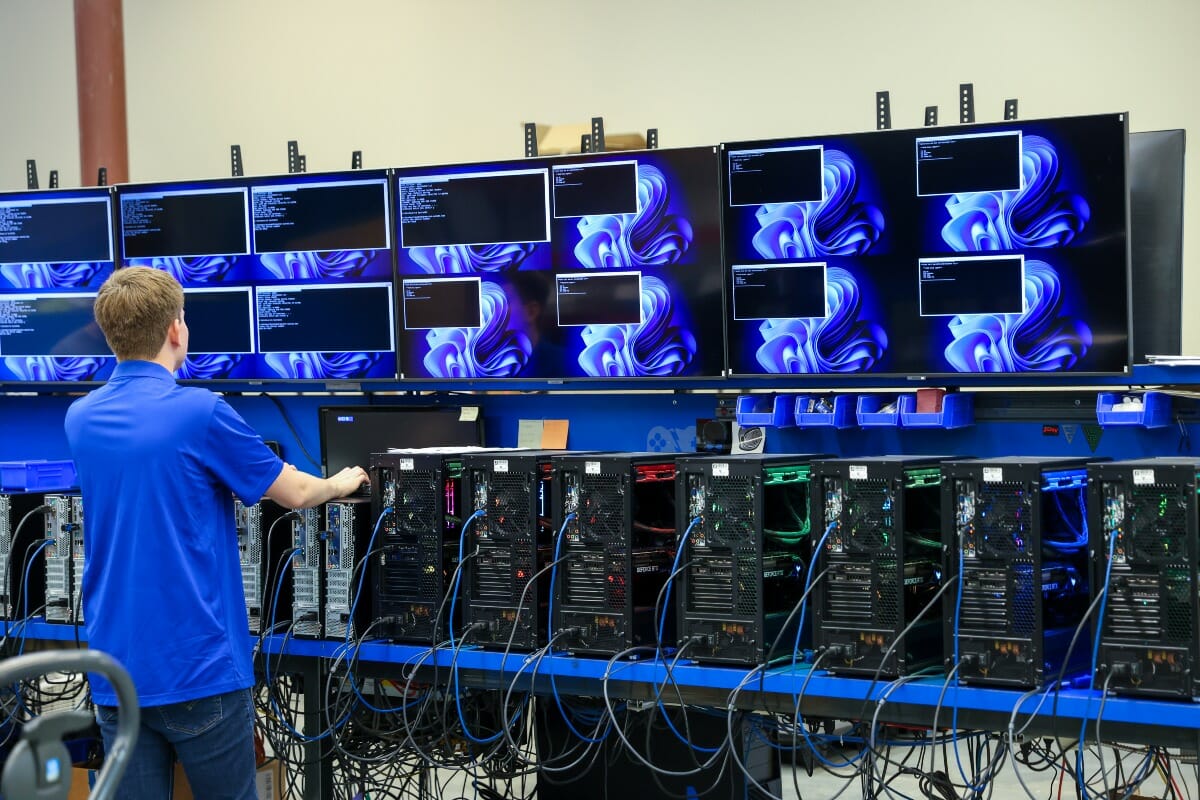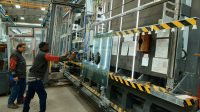Tax Exemptions & Credits
Cost effective operating environment
Site
A Great Place to set up shop
It is cost competitive to do business here. The Greater Fargo Moorhead area’s cost of living index generally hovers right around 100, meaning it is around the national average for cost of living for a U.S. metro. You’ll benefit from reasonable commercial and industrial real estate and low utility costs. And that’s before you start adding in savings from local, county and state incentives.


North Dakota Programs
Businesses that locate in Renaissance Zones may be eligible for tax credits to encourage investment and development in RZ corridors through the use of tax credits and incentives. The program is unique in that cities develop handcrafted development plans that address each city's specific goals. RZ Cities within Cass County include Fargo, West Fargo, Casselton, Kindred and Buffalo. The RZ Program includes two primary incentives, which included the possibility of a 5-year property tax and State income tax exemption for qualified projects.
Newly established or expanding primary sector businesses are eligible for a five-year exemption from North Dakota state corporate income taxes. For business expansion, the exemption applies to the increase in corporate income attributable to the expansion project and related to North Dakota revenues.
North Dakota provides sales tax exemptions for equipment and materials used in manufacturing and other targeted industries.
- A new or expanding plant may be exempt from sales and use tax on purchases of machinery or equipment used for manufacturing, ag commodity processing or recycling.
- An expanding primary sector business may also be eligible for an exemption for purchases of computer and telecommunications equipment that is an integral part of the business. The exemption does not extend to the purchase of replacement equipment.
- Other exemptions narrower in scope are also available including the construction of ag processing or energy generating facilities as well as coal mine and biodiesel fuel equipment.
The LIFT program has been very popular since being created in late 2019. This is an innovation loan fund to support technology advancement by providing financing for commercialization of intellectual property within the state of North Dakota. A LIFT loan is unsecured financing that includes 0% interest for 3 years, 2% for the next two years, and then a rate equal to the standard Bank of North Dakota rate after that.
Other state programs (funding; job; tax) sometimes accessed by our entrepreneurs can be found on our Business Incentives Page.
Up to a 20% tax credit on equipment and technology used to automate a manufacturing process. To qualify, the machinery and equipment must upgrade or advance a manufacturing process in this state, which leads to a 5% increase in average wages, workforce safety or output. There is a state-funding cap per calendar year, if more than the cap is claimed in aggregate, the actual amount each taxpayer will receive will be a pro rata share of the 20% based on the total claims. An applicant’s primary sector certification must be active at the time of the purchase(s). We encourage you to contact our office for any questions on primary sector certification process or status.
The ILT Academy continues to expand their programming into our region, as well as offer online access. Their main startup program is a 10-week interactive, immersive series of virtual classes where participants (of any age) learn to leverage world-class tools, innovation techniques, and practice key concepts in the Lean Startup methodology.
gBETA is a free 7-week program for early-stage companies, providing coaching, mentoring, meetups, pitch opportunities and more.
The Great Plains I-Corps Hub will launch in 2023, as a network to provide training to university-based inventors to help them bring their ideas from the laboratory to the marketplace. Over the course of eight weeks, the teams receive entrepreneurial education, mentoring, and funding to accelerate their fundamental research into emerging products and services.
An income tax credit for investing in an agricultural commodity processing facility certified by the ND Dept of Commerce - includes a livestock feeding, handling, milking, or holding operation that uses as part of its operation a by-product produced at a biofuels production facility. The credit is equal to 30% of the investment. No more than $50,000 of credits may be used in any year. An unused credit may be carried forward up to 10 years. A taxpayer is allowed no more than $250,000 of credits for all tax years.
This is an income tax credit for investing in a qualified primary sector business as certified by the ND Dept of Commerce. The credit is equal to 45% of the investment. No more than $112,500 of credits may be used in any tax year. An unused credit may be carried forward up to 4 tax years. If the taxpayer is a passthrough entity or an angel fund, the credit is passed through to the entity’s owners or the fund’s members based on their respective interests in the entity. Because of changes in the law, the applicable rate, limitations, and other features of the tax credit have changed over the years. For a summary of the applicable rates, limitations, and other features on a year-by-year basis, see Seed Capital Investment Tax Credit Program – Rates, limitations, and other features of the tax credit by tax year.
An income tax credit is available to individuals who set up a North Dakota angel fund for the purpose of pooling their monies to make qualified investments in qualified businesses. The amount of the credit depends on whether the qualified investment is made in an in-state or out-of-state qualified/certified business. The applicable credit rate is 35% for an in-state qualified business and 25% for an out-of-state qualified business. The maximum credit allowed to an angel investor for all qualified investments made in a tax year is $45,000. An unused credit may be carried forward up to 5 tax years.
an income tax credit for conducting research in North Dakota: 25 percent of the first $100,000 of qualified research expenses in North Dakota over the base period research expenses in North Dakota, and eight percent of any amount above $100,000. If a credit exceeds a taxpayer’s tax liability, the unused portion of the credit must be carried back 3 tax years and carried forward up to 15 tax years.
Minnesota Programs
Property tax exemption for 5, 10, or 15 years for new or rehabilitated commercial, residential or mixed-use projects located within the MRZ.
Provides incentives for business investments in targeted cities on Minnesota’s western border and includes Moorhead and Dilworth, MN.
- Workers’ Compensation Rebate – income tax credit to businesses to rebate a portion of workers' compensation expense, up to $25,000 per business per year.
- Target Area Credit – in Moorhead, employee tax credits given to new or expanding primary sector businesses within a target up to $3,000 per employee.
- Sales Tax Credit – in Moorhead, sales tax credit to new or expanding primary sector businesses up to $25,000.
- Seed Capital Investment Credit – for investments in a MN DEED-certified business located in Dilworth or Moorhead, an income tax credit equal to 45% of your amount invested in the business, up to $112,500 a year. You may carry the credit forward up to four years.
Provides a 25% credit to investors or investment funds that make equity investments in startup companies focused on high technology, new proprietary technology, or a new proprietary product, process or service in specified fields. The maximum credit is $125,000 per person, per year ($250,000 if filing jointly). The credit is refundable. Residents of other states and foreign countries are eligible. The Minnesota State Legislature allocates a limited amount of credits, and available credits have been exhausted for 2022.
The R&D credit is equal to 10% of qualifying expenses up to $2 million, and 4% for expenses above that level. Qualifying expenses are the same as for the federal R&D credit – defined in Section 41 of the Internal Revenue Code – but must be for research done in Minnesota. Examples include R&D-related wages, supplies and research contracted outside your business. Contributions to qualified nonprofit organizations that make grants to early-stage technology businesses in Minnesota also may qualify.
Provides tax benefits to businesses located in Greater Minnesota that increase employment. Qualifying businesses that meet job-growth goals may receive sales tax refunds for purchases made during a seven-year period.
An up-front sales tax exemption on eligible capital equipment purchases. To qualify for the exemption, the equipment must be used for one of the following: To manufacture, fabricate, mine, or refine products that are ultimately sold at retail; To electronically transmit information sold to retail customers from an online database; To generate electricity or steam to sell at retail.
Companies that build data or network operation centers of at least 25,000 square feet and invest at least $30 million within 48 months may qualify for a sales tax exemption for 20 years on enterprise information technology equipment, software, and electricity used to operate the data centers.
Make An Informed Decision
GFMEDC staff is here to help you learn and make an informed decision. Our team is here to learn about your stage, plans, needs and goals, to assess which programs best align and how to take the next steps towards factoring in these programs to your growth plans.
